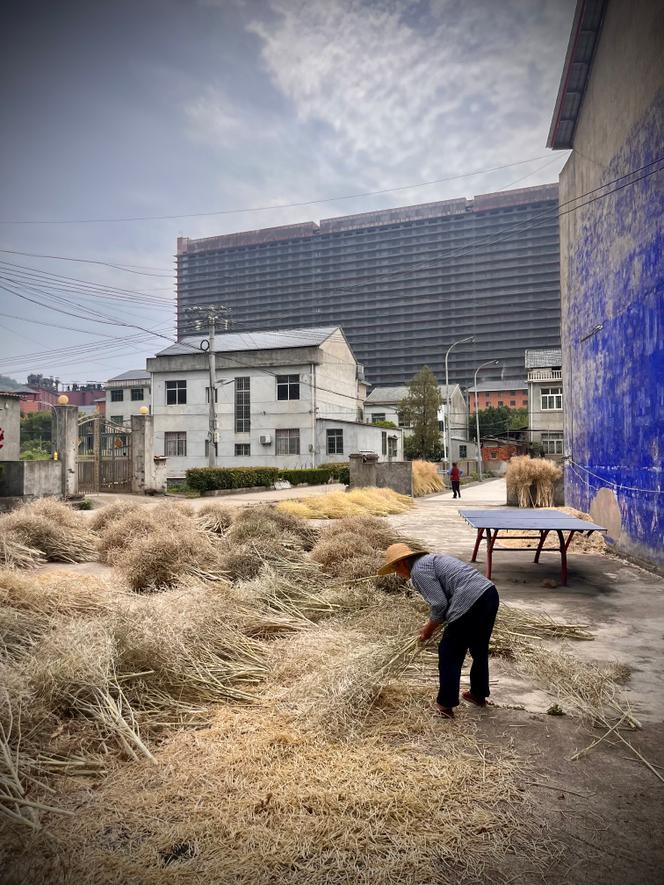


A gray dust hung over the village of Hongqiao ("Rainbow Bridge"), located 10 kilometers Southwest of Ezhou, in Hubei province. Red trucks with worn-down tires constantly converged on a strange building, a black skyscraper humming in the middle of terraced fields. Nearby, an elderly couple tended a rice paddy. Harvest was a month away. "You don't like it, do you?" the man, who requested anonymity, called out. There was a thoughtful silence. "This stench, this smell of pollution, of shit! Nobody in the village likes it." He walked away, then turned back: "We're counting on you to report on this!"
In the small houses of Hongqiao, portraits of Mao still hung above dining tables. Zhang pointed out that in her home, the portrait of Christ had replaced Mao's 40 years ago. Her porcelain-skinned daughter-in-law slipped away to hide. Zhang wanted to make sure the visitor had eaten before voicing her complaints: "Why don't we like it? Because it stinks! We can't stand it. We're poor – we can't leave our homes because nobody would ever want to move here. Those with money have already gone to the city. Yesterday, the smell carried for kilometers, but today, it's a bit better, we can breathe."
You have 84.32% of this article left to read. The rest is for subscribers only.
